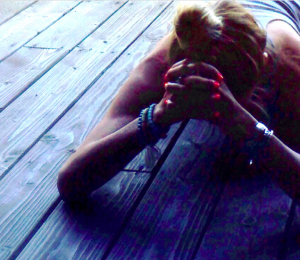Published by Josh Blatter | The 32 Metronome Project
“Man suffers only because he takes seriously what the gods made for fun.”
-Alan Watts
EPIDEMIC OF OVER-EFFORTING
As a yoga instructor I feel fortunate that I have been able to create a space to support students work through life’s trials and tribulations – the highs and lows that we all face being alive in our human suit. My approach has never been one of proposing answers or preaching truths but rather to bolster self-inquiry and experience. I watch, wait and listen as my students move into a place of understanding and insight on their own. I simply provide an environment that is conducive to such growth. At the helm of all extraordinary shifts that take place lies an unequivocal desire to be happy. The desire ignites a spark which sets the wheels in motion. It is a very pure and radiant light; a deep feeling from within the heart which is untainted by the mind.
Unfortunately the mind gets restless and overcome with neglect. It’s primary function is to create. Creation requires momentum, movement and change. The mind becomes like your right foot giving the engine more gas. The process of speeding up, if done unmindfully, is problematic. I call it ‘over-efforting’ and it is exactly as it sounds. An arduous attempt to structure an outcome quickly, where we overexert, overwork and become burnt out. It has become a societal epidemic – like a wildfire that burns up its own support. Looking into the nature of how we relate to the world sheds some light onto why we over-effort.
From the time of infancy we develop the concept of like and dislike. Pleasure and pain. Good and bad. We spent the first years of our life guided by these primordial concepts. We do the former and avoid the later. Life is simple when it is based on a pleasure-pain model where we are at the center of our own universe. A perpetually hedonistic state will work well for some time but not forever. As we mature we realize that we cannot just seek out pleasure and avoid pain. The reality of life is that sometimes we need to do things are not enjoyable. We need to get a job to provide food and shelter. We need to go to the doctor when we are sick. As a child we have homework so that we can learn to read and write. If we never fell down, how could we learn to walk? Freud coins this, ‘the reality principle’. It is the ability of the mind to assess the reality of any situation and to act upon it accordingly; allowing us to put off instant gratification for the future good. When the reality principle and the pleasure principle come face-to-face, the result is the potential for over-efforting. The reality piece, telling us that what we do now may not be pleasant but there is something grand in store. The pleasure piece saying, well then, let’s speed this up so we can get to the good stuff.
It make sense that in our society the need for instant gratification and over effort is at the forefront of our actions. If you have ever turned on the television, read a magazine ad, glanced up at a billboard, you have seen, ‘faster, quicker, better, more.’ It may not have been those actual words but some depiction of the concept. Patience which was once a virtue is now deemed a quality of dormancy. When we take this model and superimpose it on our life we risk mental burnout, physical exhaustion and emotional numbness. We burnout because even when we get our needs met we are left thirsty for more. The Buddhist teachings refer to this craving as the hungry ghost; one with a mouth that is too small to satisfy its’ hunger. It like an itch that cannot be scratched.
It is easy to witness how children can scratch their itch. Their desires are met because they come from a place of innocence, purity and simplicity. I remember as a young boy dressing up like Batman. I would run around the house with a cape around my neck, playing out scenes from the comics. I wanted to be a superhero and I was a superhero when the cape was on. When the cape came off I was never sad. I didn’t need more time in my Marvel world or worried about when I would get to fight crime next. The time spent in my costume was fulfilling. It scratched the itch. As adults we wear similar costumes. We dress up as an overachiever, a healer, a victim, a workhorse, etc. However as adults when we are stripped of our costumes we find there is still something to scratch. We scratch it harder and harder but it does not go away. This is what over efforting feels like – never enough. Thirsty for more like a hungry ghost.
If we can take a moment to stop and look at where we are coming from, liberation from our need to overexert is possible. The first step requires that we trust the ground in which we stand on. We know that the footsteps we made our in fact our own and that which ever route we chose or choose to take in the future is the right one. We ask ourselves why is it that I need to put in this much work? What am I trying to attain? Does it really make me feel accomplished? Do I every really scratch the itch? If we can look at these questions and boil them down to their essence, there is usually a drop of wisdom – instilling with us the root of our need to over-effort. It could be fear, doubt, lack of confidence, insecurity; you fill in the blank. Every time you feel yourself coming from this place, remind yourself it is just an itch. Don’t scratch it forcibly. Just once or twice. Then let it go.












